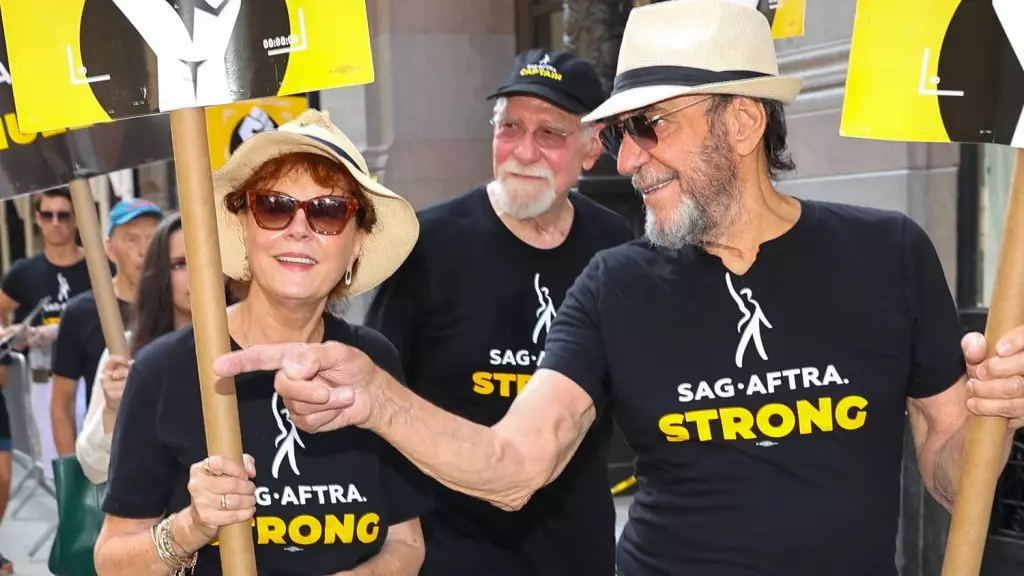The ongoing strikes by the Writers Guild of America East and SAG-AFTRA are now in their 127th and 54th day, respectively. Despite the absence of picket lines on Tuesday in New York City, the writers and actors continued their protest outside the offices of major entertainment companies. While the turnout was relatively small, the determination of those involved remained unwavering.
At the picket outside the Netflix offices, about four dozen people gathered to show their support for the writers’ cause. Notable figures such as Susan Sarandon, F. Murray Abraham, Michael Cyril Creighton, and Mike Doyle joined the protesters. Voice actor, singer, and SAG-AFTRA strike captain Sue Berch addressed the crowd, expressing gratitude for their presence. However, Berch took the opportunity to respond critically to recent comments made by talk show host Bill Maher regarding the strike.
Critical Analysis of Bill Maher’s Remarks
In a recent episode of his podcast, Club Random, Bill Maher acknowledged the struggles faced by writers in terms of residual income from streaming services. However, he also referred to some of their demands as “kooky” and insinuated that writers expected to be handed a living. Berch, while watching Maher’s show, felt frustrated by his tone-deafness. She argued that writers deserve a fair wage for their work and that it is a reasonable request, given that many of them have established careers in the industry.
Berch further highlighted a statement made by Warner Bros. CEO David Zaslav in a recent SEC filing. Zaslav estimated that the ongoing strikes would cost the company between $300 million and $500 million. Berch proposed a simple solution to this financial burden faced by the companies: return to the negotiation table, reach a fair agreement, and bring an end to the strike. By doing so, both parties would benefit—companies wouldn’t incur further losses, and writers would be able to resume their work.
As the picket continued outside NBCUniversal headquarters, background actor Margaret Owens shared her perspective on the strike. Owens, a member of SAG-AFTRA since 2014, emphasized the importance of background actors in the industry. Despite their limited screen time, they contribute significantly to the overall production. Owens expressed concerns about the potential threat of digital replication and the replacement of background actors with artificial intelligence in future projects. She stressed the need for adequate protections in the upcoming contract negotiations to safeguard the interests of everyday actors who bring films and shows to life.
Owens’s dedication to the strike was palpable. Traveling from Philadelphia to New York City, she took a day off from her office job to participate in the protest. Despite not having any major screen credits, she recognized the significance of standing up for the rights of all actors involved in the industry. Owens’s commitment exemplifies the determination of those involved in the strike and serves as a reminder that not all actors are millionaires.
The ongoing strikes by the Writers Guild of America East and SAG-AFTRA demonstrate the collective fight for fair compensation and protection within the entertainment industry. Despite facing criticism from prominent figures like Bill Maher, writers and actors remain resolute in their demands for reasonable treatment. As negotiations continue, both sides must recognize the contributions and significance of every individual involved in the creation of films and shows. Only through fair agreements can the industry truly flourish and ensure the well-being of those who bring our favorite stories to life.

